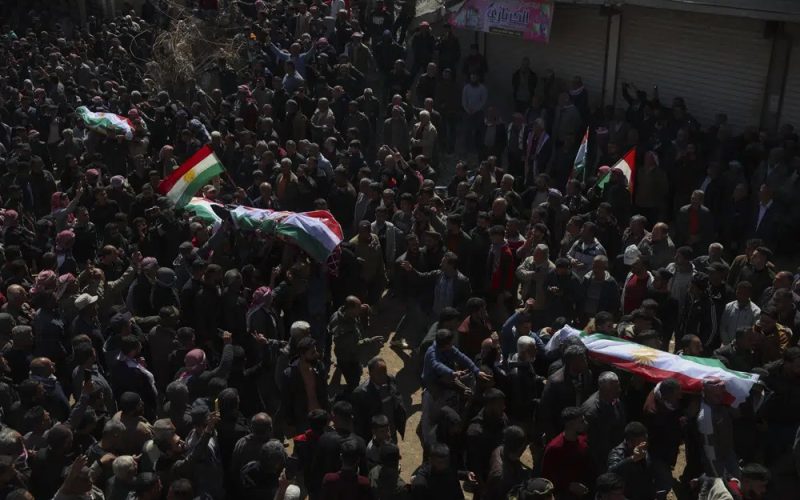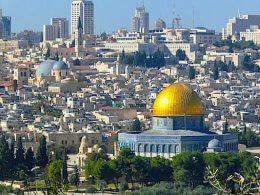Thousands of Kurds took to the streets of the earthquake-ravaged Syrian town of Jinderis on Tuesday to protest the killing of four men as they lit a fire to celebrate the Kurdish new year the night before.
The attack on the Kurdish men rekindled tensions between Turkish-backed armed groups controlling the area and Kurdish residents. It fed into a power struggle between rival armed factions that control different parts of northwest Syria.
At the request of Kurdish residents, fighters from the armed opposition group Hayat Tahrir al-Sham deployed en masse around Jinderis on Tuesday. The Syrian Observatory for Human Rights, an opposition war monitor, reported that the group had taken over the headquarters of the Ahrar Sharqiya group, a Turkish-backed armed opposition group, in the area.
A HTS spokesperson declined to comment on the matter, but there was a heavy presence of the group’s fighters in and around the city as crowds of Kurds attended the funerals of the victims. Meanwhile, Turkish forces deployed on the road linking the town of Atmeh, controlled by HTS, with Jinderis.
The assailants who shot the Kurdish men as they were lighting a fire in celebration of the Nowruz holiday allegedly belonged to Jaish al-Sharqiya, a splinter group of Ahrar Sharqiya.
Related Story: Iraq and Iran Sign Deal to Tighten Border Security









